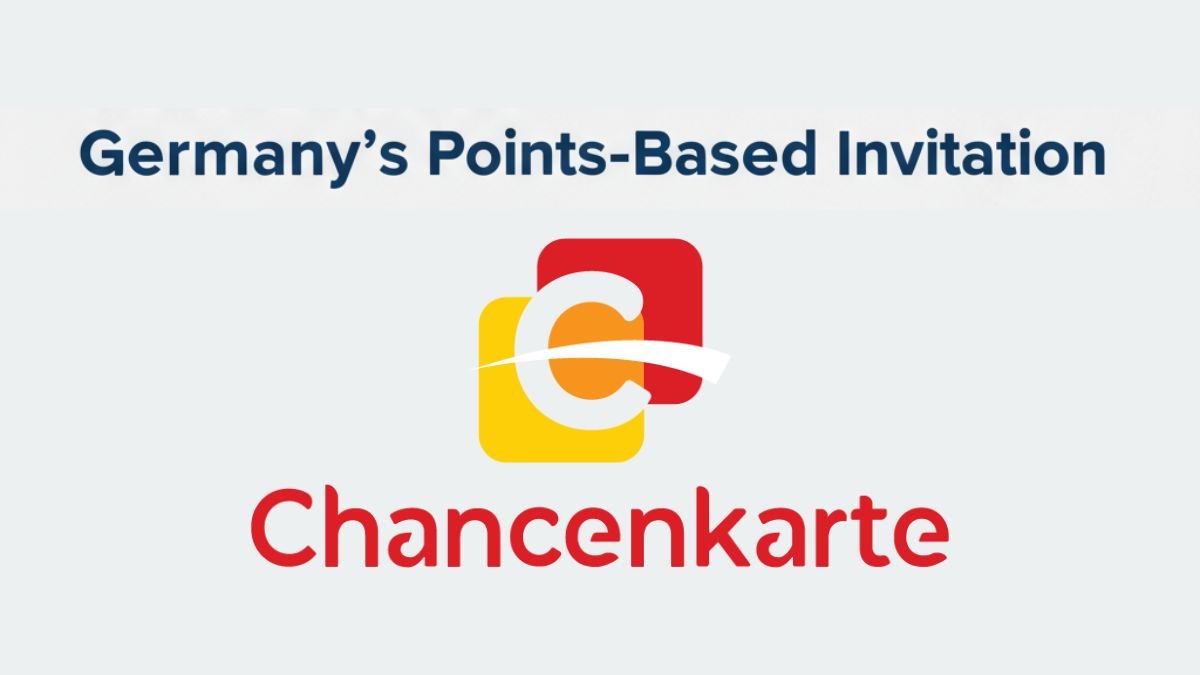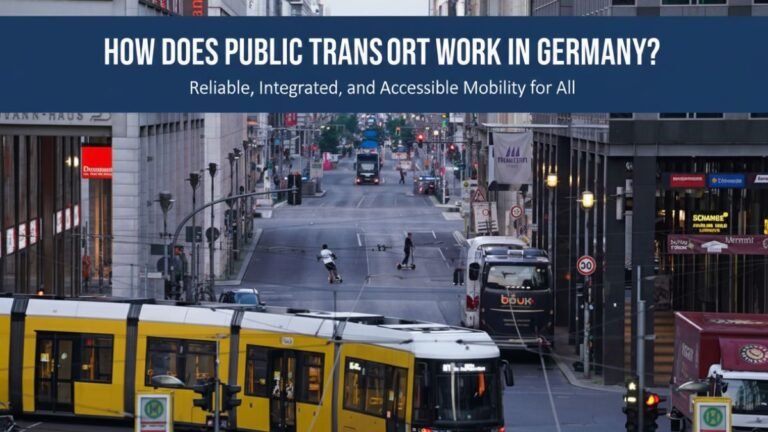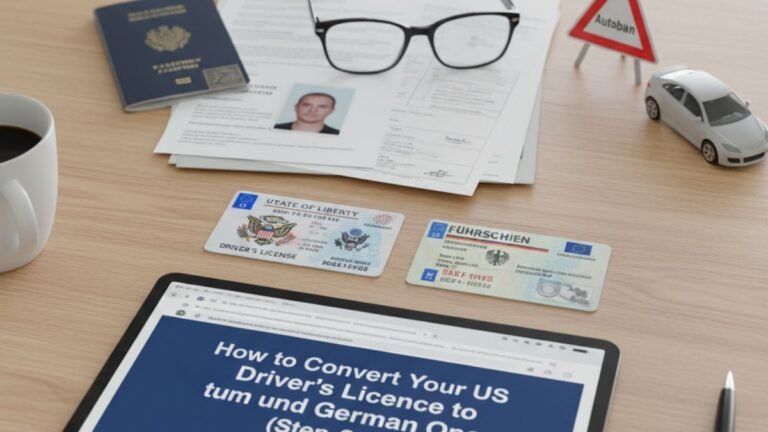Opportunity Card (Chancenkarte): Germany’s Points-Based Invitation

Opportunity Card, or Chancenkarte, represents a revolutionary new pathway in German immigration law. It is a residence permit valid for up to one year, designed explicitly for the purpose of seeking employment in Germany.
The most significant innovation of the Chancenkarte is that it does not require an applicant to have a pre-existing employment contract. This fundamentally changes the job-seeking dynamic for foreign professionals, allowing them to enter the country, interact directly with potential employers, and secure a qualified position on-site.
The card officially replaces the previous, more restrictive Job Seeker Visa, offering greater flexibility and better prospects.
Basic Prerequisites for All Applicants (Points-Based Path)
Before an applicant can begin to accumulate points, they must first satisfy several non-negotiable basic requirements. Failure to meet any of these prerequisites automatically disqualifies a candidate from the points-based path.
- Qualification: The applicant must possess either a university degree or a vocational qualification that required at least two years of training. Crucially, this qualification must be state-recognized in the country where it was obtained.
- Language Skills: The applicant must provide proof of proficiency in either German at a minimum level of A1 (basic user) OR English at a minimum level of B2 (independent user) according to the Common European Framework of Reference for Languages (CEFR).
- Financial Security: The applicant must demonstrate that they can support themselves for the duration of their one-year stay without recourse to public funds. This is typically proven by depositing sufficient funds into a German blocked account (Sperrkonto). For 2025, the required amount is €1,091 per month, which translates to a total of €13,092 for the full year.
Deconstructing the Points System: A Granular Analysis
For those on the points-based path, achieving the six-point minimum is the central challenge. The system is designed to reward a combination of formal qualifications, practical experience, language abilities, and other factors that indicate a high potential for successful integration into the German labor market and society.
- 4 Points – Qualification Equivalence
- Awarded to applicants who have initiated the formal recognition process for their foreign qualification and have received a statement of “partial equivalence.” This also applies to those in regulated professions (e.g., engineer, nurse) who still need to complete compensatory measures to obtain a full license to practice in Germany.
- 3 Points – Substantial Experience or German Skills
- Awarded for at least five years of professional experience (in a field related to the applicant’s qualification) acquired within the last seven years.
- Alternatively, awarded for German language skills at level B2 or higher.
- 2 Points – Foundational Experience, German Skills, or Youth:
- Awarded for at least two years of professional experience (related to the qualification) acquired within the last five years.
- Alternatively, awarded for German language skills at level B1.
- Alternatively, awarded to applicants who are 35 years of age or younger at the time of application.
- 1 Point – Additional Attributes:
- German language skills at level A2.
- Age between 35 and 40.
- Possessing a qualification in one of Germany’s designated shortage occupations.
- A previous legal, continuous stay in Germany of at least six months within the last five years (tourist stays do not count).
- Applying for the Opportunity Card jointly with a spouse or registered partner at the same German mission.
- English language skills at level C1 or higher.
Life on the Opportunity Card
The Opportunity Card is designed to be a practical tool for an active job search. It provides the legal framework and financial means for a candidate to establish a foothold in Germany while seeking long-term employment.
- Work Rights: While the primary purpose of the stay is to find a qualified job, holders are permitted to take up part-time employment for up to 20 hours per week in any sector. Based on Germany’s minimum wage, this allows for a monthly income of over €1,000, which can help supplement the funds in the blocked account. Additionally, holders can undertake an unlimited number of two-week trial jobs in qualified fields to test compatibility with potential employers.
- The Goal: Transition to a Full Permit: The Chancenkarte is a temporary bridge, not a final destination. Once a cardholder secures a binding job offer for qualified employment, they must apply to the local Foreigners’ Authority (Ausländerbehörde) in their city of residence to convert their status to a full work-based residence permit, such as an EU Blue Card or a Skilled Worker Visa. The Opportunity Card itself can be extended for up to two additional years if the holder has a contract for qualified employment but has not yet obtained the subsequent residence title, providing a safety net during the transition period.
A deeper analysis of the points system reveals that it is not solely a measure of raw technical skill or professional experience. Instead, it is carefully calibrated to favor candidates with a high potential for successful and rapid integration. While professional qualifications are important—evidenced by the four points awarded for partial recognition—they are balanced by a significant emphasis on other factors. Language proficiency is heavily weighted, with up to three points available for German and an additional point for advanced English.
Age is also a key criterion, with two points awarded to those under 35, reflecting a strategic focus on attracting individuals with a longer potential working life who can contribute to the social security system for decades to come, directly counteracting Germany’s demographic aging.
The allocation of points for a prior stay in Germany or for applying with a partner further underscores this focus on integration. The system is therefore designed to identify individuals who are not only qualified on paper but who also possess the linguistic skills, youth, and existing connections that make them more likely to adapt, thrive, and build a permanent life in Germany.
The Opportunity Card Points Calculator
| Category | Criteria | Points Awarded |
| Equivalence of Qualification | Partial recognition of foreign qualification, or requirement for compensatory measures for a regulated profession. | 4 |
| Professional Experience | At least 5 years of experience in the last 7 years. | 3 |
| At least 2 years of experience in the last 5 years. | 2 | |
| Language Skills (German) | German proficiency at level B2 or higher (CEFR). | 3 |
| German proficiency at level B1 (CEFR). | 2 | |
| German proficiency at level A2 (CEFR). | 1 | |
| Language Skills (English) | English proficiency at level C1 or higher (CEFR). | 1 |
| Age | 35 years or younger. | 2 |
| Between 35 and 40 years old. | 1 | |
| Connection to Germany | Previous legal, non-tourist stay of at least 6 months. | 1 |
| Qualification in Shortage Occupation | Formal qualification is in a designated shortage occupation. | 1 |
| Joint Application | Applying for the Opportunity Card together with a spouse/partner. | 1 |
| MINIMUM REQUIRED SCORE | 6 |
If you’re looking for more blog like German Visa Pathways for Skilled Professionals and Strategic Decision-Making For the Right German Immigration Visa subscribe to join us.






